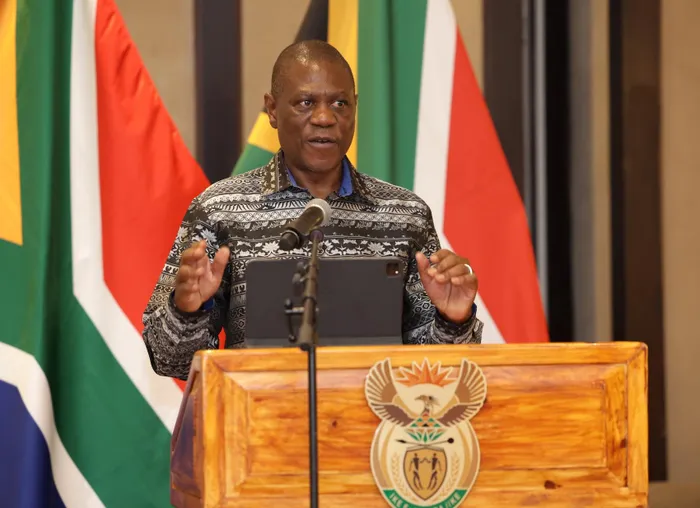
Deputy President Paul Mashatile delivered a virtual address on the occasion of 2025 Budget Roundtable, FFC Offices, Foreshore, Cape Town.
Image: The Presidency
Banele Ginindza
Deputy President Paul Mashatile on Wednesday said the 2025 Budget process has instilled important lessons, relating to improving transparency in decision-making processes and that the current budgetary process is not transparent and inclusive enough.
The 2025 Budget has brought into sharp focus the government's revenue-raising and expenditure measures after Finance Minister Enoch Godongwana proposed a controversial 0.5 percentage point increase in the value-added tax.
Speaking at the 2025 Budget Roundtable discussion, Mashatile said a transparent process was one that allowed for public participation, scrutiny, and informed decision-making, ultimately leading to better resource allocation and improved service delivery to the citizenry.
"In fact, the foremost lesson we have learned is that we need to return to the concept of the people's budget, this was advocated by Ben Turok, and Joanamarrie Fubbs. What this means is that we need fiscal planning that is inclusive from the start, in terms of the Medium Term Expenditure Framework, and in line with Government's priorities," Mashatile said.
"In this case, the budget process as part of fiscal planning must focus on how we address the issues of poverty, unemployment, and inequality specifically."
Mashatile said the 2025 process has also instilled the importance of fiscal planning, and implementing financial strategies to achieve specific economic goals, is often related to debt management, government spending, and tax policies.
He said this included considering factors such as interest rates, economic growth, and structural reforms to ensure a stable and transparent macroeconomic environment. The goal here was to create a sustainable fiscal position that supports economic growth and manages risks effectively.
He said post the budget, key aspects of Charting Fiscal Pathways required sound macroeconomic policies and, in the country's case, required socio-economic policies that were going to change the economy and ensure that many people were involved in the mainstream economy.
"The reality is that the 1994 protracted outcome resulted in the ANC taking state or political power; however, not the levers of the economy," Mashatile said.
"In that, there remains a limited diversification in economic activities which demonstrate lack of structural transformation, wherein the majority are not meaningfully contributing and participating in key growth economic sectors."
He said for the first 15 years of the country's democratic rule, the economy grew at a rapid pace. However, over the past decade-and-a-half, the country's economy had been marked by slow growth.
The International Monetary Fund (IMF) on Tuesday slashed South Africa’s economic growth projections for 2025 by 0.5 percentage on the back of slowing activity in the country’s two largest trading partners amid rising US tariffs.
In its World Economic Outlook (WEO) for April, the IMF projected South Africa’s real gross domestic product (GDP) to rise only to 1% in 2025 and 1.3% in 2026, which will also drag down the Sub-Saharan African economy.
North West University Business School economist, Prof Raymond Parsons, said this growth projection was simply not good enough for South Africa, given its socioeconomic challenges.
Parsons said it fell far short of the GNU’s target of wanting 3% inclusive growth in the medium term.
"High investment and job-rich growth therefore require confidence in the future. There needsto be a renewed emphasis on accelerating key structural reforms," he said.
"A strategic pivot in growth policy is urgently required to create the extra economic buffers and resilience needed to decisively deal with external shocks, and to ensure that tailwinds outweigh headwinds in 2025."
Meanwhile, Mashatile said post budget, key aspects of Charting Fiscal Pathways included the State focusing on managing government debt levels, including strategies to reduce debt-to-GDP ratios or ensure debt sustainability.
This, he said, entailed the government spending decisions prioritising investments in areas like infrastructure or social programmes while balancing fiscal responsibility.
BUSINESS REPORT